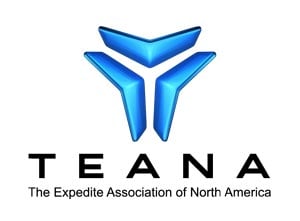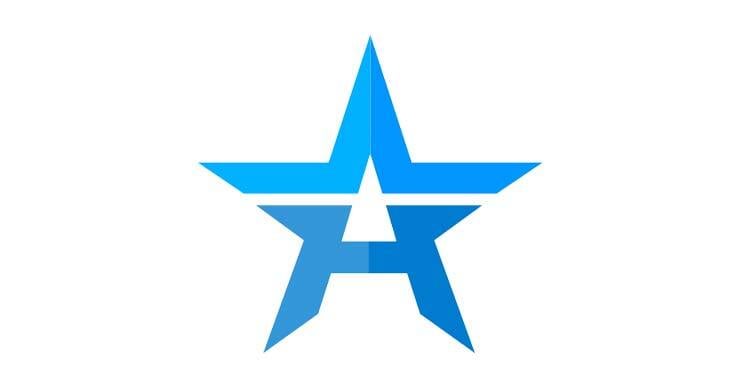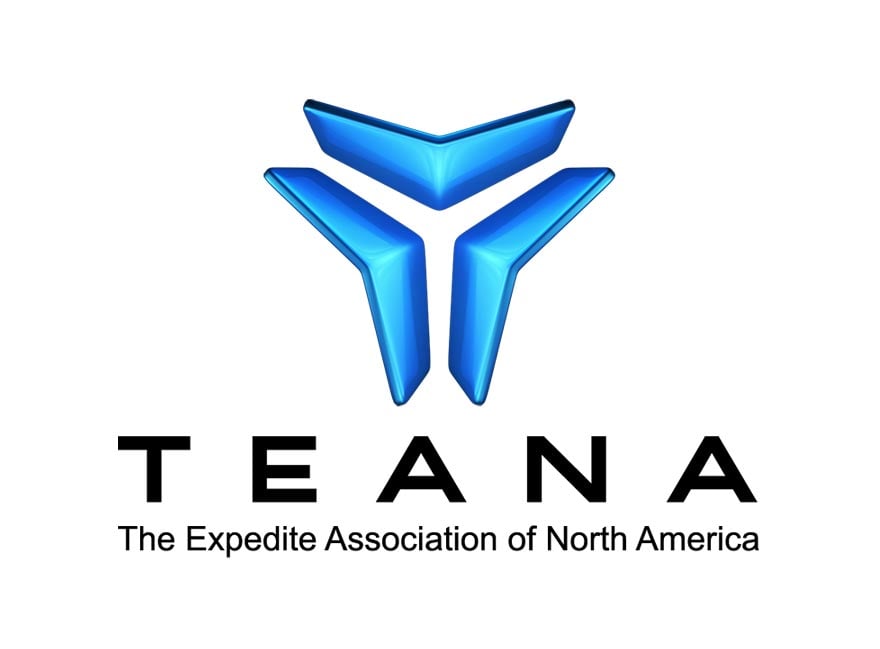
Contents
Regulation and Enforcement
- Labor Department nominee concedes federal ABC test is up to Congress
- Volpe Center supporting FMCSA in test of wireless inspections
- CVSA announces Operation Safe Driver Week for July 9-15
- Women of Trucking Advisory Board to meet June 29
- FMCSA launches anti-human trafficking campaign
- Brenna Marron to head FMCSA’s government affairs office
Legislation
- House T&I Committee approves package of bills related to trucking
- House bill would expand carriers’ access to driver safety data
- House bill would allow expanded use of G.I. Bill benefits for CDL training
- President Biden vetoes Congress’ disapproval of EPA rule on truck emissions
Advocacy and Comment
Regulation and Enforcement
Labor Department nominee concedes federal ABC test is up to Congress
President Biden’s nominee to be U.S. Secretary of Labor told a House committee on June 7 that the department has no intention of imposing a federal ABC test such as that contained in California’s AB 5 law and that it could be imposed only if Congress decided to do so. Deputy Secretary Julie Su, who has been acting secretary since the departure of Marty Walsh in March, noted under questioning before the House Committee on Education and the Workforce that the department already has a proposed rule concerning independent contractors that does not include an ABC test. “Bona fide independent contractors will always have a place in our economy,” Su said. A recording of the hearing on DOL policies and priorities is available at https://edworkforce.house.gov/calendar/eventsingle.aspx?EventID=409217.
Su’s views on AB 5 and the ABC test are under scrutiny because she previously served as secretary for the California Labor and Workforce Development Agency during a period when the LWDA was challenging what the agency considered to be misclassification of workers as independent contractors. The House committee before which Su testified on June 7 plays no official role in her nomination, but her confirmation appears to be in danger due to the razor-thin margin Democrats hold in the Senate and reservations already expressed about her nomination from a few Democrats. Moreover, Su’s nomination has been widely opposed by business groups within trucking, including several within trucking.
While DOL says it does not have authority to impose a federal ABC such as that contained in AB 5, it is part of a package of pro-labor legislation contained in the so-called PRO Act, which the Biden administration and Democrats in Congress support. However, the PRO Act has no chance of passage in the current Congress given Republican control of the House.
Volpe Center supporting FMCSA in test of wireless inspections
The U.S. DOT Volpe Center announced in May that it is supporting FMCSA in developing and implementing the Level VIII Inspection Program Operational Test, which will involve wireless inspections of commercial vehicles and drivers while the vehicle is in motion. Under the program, in-motion inspection results would be entered into a carrier’s safety record. Carriers identified by the wireless inspection would be required to stop for a conventional inspection. The Volpe Center’s role is providing program management, communications, data analysis, and stakeholder engagement.
The Commercial Vehicle Safety Alliance announced the Level VIII electronic inspection protocol in 2017. A Level VIII electronic inspection must include, where applicable:
- A descriptive location, including GPS coordinates;
- Electronic validation of who is operating the vehicle;
- Appropriate driver’s license class and endorsement(s) for vehicle being operated;
- License status;
- Valid Medical Examiner’s Certificate and Skill Performance Evaluation (SPE) Certificate;
- Current driver’s record of duty status;
- Hours-of-service compliance;
- USDOT or (Canada) NSC number;
- Power unit registration;
- Operating authority;
- Unified Carrier Registration (UCR) compliance; and
- Federal out-of-service orders.
The project will run at least through May 2024. For more information on the program, visit https://www.fmcsa.dot.gov/level-viii-inspections.
CVSA announces Operation Safe Driver Week for July 9-15
The Commercial Vehicle Safety Alliance (CVSA) will hold its annual Operation Safe Driver July 9-15. Throughout the week, law enforcement officers in the U.S., Canada, and Mexico will target commercial motor vehicle drivers and passenger vehicle drivers engaging in unsafe driving behaviors. Each year, Operation Safe Driver Week focuses on a specific unsafe driving behavior to call attention to the dangers of that behavior. This year, the focus will be on speeding.
Women of Trucking Advisory Board to meet June 29
FMCSA announced a June 29 meeting of the Women of Trucking Advisory Board. The purpose of the meeting, which will be open to the public virtually, will be consideration of ways to expand existing opportunities for women in the trucking industry. For more information, see the Federal Register notice at https://www.federalregister.gov/d/2023-12470.
FMCSA launches anti-human trafficking campaign
FMCA recently launched a campaign called “Your Roads, Their Freedom” aimed at increasing awareness of commercial motor vehicle drivers about human trafficking and at providing information needed to identify and report suspected trafficking. For more information and links to shareable resources, visit https://www.fmcsa.dot.gov/stophumantrafficking.
Brenna Marron to head FMCSA’s government affairs office
FMCSA has named Brenna Marron director of governmental affairs. Most recently, Marron served as deputy executive director of the House Democratic Policy and Communications Committee. She previously served within the Department of Transportation as an advisor with the Federal Railroad Administration and director of scheduling within the Office of the Secretary of Transportation during the Obama administration.
Legislation
House T&I Committee approves package of bills related to trucking
The U.S. House Transportation and Infrastructure (T&I) Committee last month approved a slate of measures aimed at strengthening the supply chain, including several related to trucking. The bills would still need to be passed by the House and Senate and signed by the president before becoming law. Trucking-related measures approved by the T&I Committee were:
- H.R. 915, which increases efficiency and highway safety in the supply chain network by requiring FMCSA to develop a new safety fitness determination (SFD) process to change the way a motor carrier is rated. The bill establishes an interim standard until the new SFD process is completed. That standard would consider selection of a motor carrier to be reasonable if the contracting entity verifies no earlier than 45 days prior to the date of the shipment that the carrier is licensed, registered, and insured and is not deemed unfit under existing standards. Visit https://www.congress.gov/bill/118th-congress/house-bill/915.
- H.R. 2948, which allows automobile transporters to continue carrying the same number of vehicles as they currently do despite increasing weight of newer vehicles. The bill allows a 10% weight increase for certain types of automobile transporters. Visit https://www.congress.gov/bill/118th-congress/house-bill/2948.
- H.R. 3013, which makes permanent two waivers issued by FMCSA during the pandemic to allow for more efficient CDL testing. Visit https://www.congress.gov/bill/118th-congress/house-bill/3013.
- H.R. 3372, which establishes a safety data collection program for certain six-axle vehicles and establishes a voluntary 10-year pilot program for states to increase truck weights on federal interstates up to 91,000 lbs. on six axles. Visit https://www.congress.gov/bill/118th-congress/house-bill/3372.
- H.R. 2367, which increases resources for the construction of new commercial motor vehicle parking, additional parking at current CMV parking areas, and improvements to existing CMV parking. It also requires CMV parking spaces built with those funds to be accessible to all CMVs without charge. Visit https://www.congress.gov/bill/118th-congress/house-bill/2367.
- H.R. 3318, which establishes a 10% axle weight variance for dry bulk without any increase in the overall federal gross vehicle weight limit. The bill makes an allowance for the fact that dry bulk can shift during transportation and redistribute a truck’s weight. Visit https://www.congress.gov/bill/118th-congress/house-bill/3318.
- H.R. 3447, which provides a 2,000-pound weight exemption to hydrogen-powered vehicles, similar to the exemption currently available for both battery-electric and natural gas-powered heavy-duty trucks. Visit https://www.congress.gov/bill/118th-congress/house-bill/3447.
- H.R. 1836, which allows the Federal Maritime Commission to review complaints about market manipulation and anti-competitive operations of maritime exchanges. Visit https://www.congress.gov/bill/118th-congress/house-bill/1836.
The committee also debated a bill (H.R. 3408) that would have modified the three-year pilot apprenticeship program for younger commercial motor vehicle drivers that was included in the Infrastructure Investment and Jobs Act. H.R. 3408 would bar some of the restrictions that the Biden administration placed on the program when it implemented the pilot program. Democrats on the committee uniformly opposed the bill, which alone would not have thwarted committee approval. However, the bill also was opposed by various groups – including some with Republican allies – that oppose the pilot program itself and, therefore, opposed the bill on the grounds that it would make the pilot program more attractive for drivers and carriers. Visit https://www.congress.gov/bill/118th-congress/house-bill/3408.
House bill would expand carriers’ access to driver safety data
Reps. Garret Graves (R-Louisiana) and Sharice Davids (D-Kansas) introduced legislation (H.R. 3356) that would give motor carriers access to the same data for existing drivers that they can access for prospective new hires under FMCSA’s Pre-Employment Screening Program (PSP). For mor information on H.R. 3356, visit https://www.congress.gov/bill/118th-congress/house-bill/3356.
House bill would allow expanded use of G.I. Bill benefits for CDL training
Reps. Check Edwards (R-North Carolina) and Chris Pappas (D-New Hampshire) introduced a bill (H.R. 2830) that would eliminate restrictions imposed on veterans’ use of G.I. Bill benefits to obtain a commercial driver’s licenses. The bill would exempt new branches of established CDL training facilities from the statutory two-year waiting period to accept benefits if the primary training facility has already been approved by the Department of Veteran Affairs and state approving agencies. For more information on H.R. 2830, visit https://www.congress.gov/bill/118th-congress/house-bill/2830.
President Biden vetoes Congress’ disapproval of EPA rule on truck emissions
President Biden on June 14 vetoed a joint resolution (S.J. Res. 11) that would have disapproved the final rule published by the Environmental Protection Agency in January to establish new heavy-duty engine emissions standards for oxides of nitrogen and pollutants. In May, the U.S. House of Representatives passed S.J. Res. 11 by a 221 to 203 vote following Senate passage earlier in the year. Republicans do not have the votes necessary to override the veto, so the EPA regulations will remain in place. For more information, visit https://www.congress.gov/bill/118th-congress/senate-joint-resolution/11.
Advocacy and Comment
The following topics are worthy of comment this month:
(1) The Congressional letter to the OIG has been sent with bipartisan support for consideration. It expresses the intent of Congress that the OIG set up a special enforcement operation to address the broader aspect of criminal prosecution of fraud in the supply chain. The time has come for stakeholders to support this initiative by writing Federal House and Senate representatives. For help in participating in this effort, please contact asectt@gmail.com.
(2) Among the numerous House initiatives discussed above is the red light-green light legislation which would confirm that “fit to operate is fit to use.” See H.R. 915. If passed, the legislation would establish that customers could rely upon fit to operate as a green light, at least until the FMCSA formalizes the new safety fitness determination. Carriers and their customers want the same thing on this issue. The carrier community has made clear, though, that “safe to operate is safe to use” is already the litmus test for determining the red light-green light issue. The Agency conceded this point 13 years ago but it steadfastly failed to abandon SMS methodology and to simply vet carriers under new entrant audit standards.
(3) The absence of carrier vetting is a real issue not only for safety but also for fraud detection purposes. The possible merits of the Volpe initiative in making a safety fitness determination is yet to be explained. Yet to the extent that the program could identify ghost carriers, double brokerage, and help identify fraudulent operators, the data might serve a useful purpose.
Finally, the FMCSA is going to release a Notification of Final Regulatory Guidance in “Definitions of Broker and Bona Fide Agents” on June 16, 2023. This issue will be covered next month. See https://www.federalregister.gov/d/2023-13080 for more information.
Our Process lorem ipsum dolor sit amet, consectetur adipiscing elit. Nunc vulputate libero et velit interdum, ac aliquet odio mattis.
Value prop lorem ipsum
Ut posuere hendrerit nisl metus neque. Facilisis quis adipiscing a molestie. Tempor turpis tincidunt nulla diam in. Nec etiam ut neque placerat mauris nulla. Semper hendrerit at urna orci in faucibus sit lacus. Tincidunt fermentum consequat.
SEE OTHER CITIES WE SERVICE IN THIS STATE
Value prop lorem ipsum
Ut posuere hendrerit nisl metus neque. Facilisis quis adipiscing a molestie. Tempor turpis tincidunt nulla diam in. Nec etiam ut neque placerat mauris nulla. Semper hendrerit at urna orci in faucibus sit lacus. Tincidunt fermentum consequat.
SEE OTHER CITIES WE SERVICE IN THIS STATE
Related Blog Posts

Regulatory and Legislative Update - January 2025
Contents Regulation and Enforcement FMCSA expands crash preventability review criteria FMCSA to highlight upcoming SMS changes in January 16 webinar Compliance date pushed back for certain provisions of broker/forwarder rule Trump labor pick, port dispute stance raise questions about labor policy FMCSA proposes to waive hazmat endorsements for certain limited operations Company denied exemption for limited interstate driving by younger drivers...

Regulatory and Legislative Update - August 2023
Contents Regulation and Enforcement FMCSA to revisit state regulation of drivers’ rest breaks Three devices removed from list of registered ELDs FMCSA updates technical guidance on ELDs Brian Stansbury appointed FMCSA’s chief counsel FMCSA rejects driver’s requested exemption from multiple HOS requirements Legislation Senate DOT funding bill would block younger driver program mandates Senate bill would establish a carrier selection standard...

Regulatory and Legislative Update - August 2022
Contents FMCSA has extended its emergency declaration regarding COVID-19 through August 31, 2022. For the latest version and other guidance related to COVID-19 is available at www.fmcsa.dot.gov/COVID-19. Note that use of the declaration now requires monthly reporting by carriers. Courts Appeals court upholds the latest changes to HOS rules Appeals court overturns ruling for Schneider in classification case Regulation and Enforcement Registration...

Regulatory and Legislative Update - January 2024
Regulatory and legislative news for January 2024 includes FMCSA Registration Modernization Stakeholder Day, the DOL issuing its final rule on independent contractor classification, comments being sought on petitions to overturn California and Washington preemption and more. Contents Regulation and Enforcement FMCSA Registration Modernization Stakeholder Day DOL issues final rule on independent contractor classification Comments sought on...

Regulatory and Legislative Update - February 2023
Contents Regulation and Enforcement FMCSA proposes to revamp SMS, rejects IRT as ‘overly complex’ FMC judge rules in favor of motor carriers on intermodal chassis choice Further input sought on regulating autonomous trucking operations Three ELDs are removed from FMCSA’s list of registered devices CVSA International Roadcheck scheduled for May 16-18 FMCSA rejects driver’s requested exemption from HOS, ELD requirements Multiple carriers seek...

Regulatory and Legislative Update - March 2023
Contents Regulation and Enforcement FMCSA extends deadlines in broker proceedings, sets March 31 session Earl Adams named FMCSA deputy administrator; Van Steenburg to retire as CSO Employers to be notified of drivers’ clearinghouse status changes FMCSA issues enforcement policy on actual knowledge of substance violations Pitt Ohio seeks relief from CDL requirement of younger driver program Autonomous vehicle firms seek relief concerning warning...

Regulatory and Legislative Update - May 2023
Contents Regulation and Enforcement DOT to allow oral fluids testing for controlled substances FMCSA forms task force on truck leasing FMCSA says states may grant CDLs or CLPs to Mexican citizens under DACA program California mandates zero-emissions vehicles by 2042 Comment periods closing soon on SMS changes, crash preventability program Propane industry denied broad HOS exemption Alaskan ice road school seeks skills test exemption FMCSA renews...

Regulatory and Legislative Update - December 2021
Contents FMCSA has extended its emergency declaration regarding COVID-19 through February 28. For the latest version and other guidance related to COVID-19 is available at www.fmcsa.dot.gov/COVID-19. Note that use of the declaration now requires monthly reporting by carriers. Legislation House passes ocean shipping reform bill House passes Build Back Better Act House bill would federalize major crash lawsuits, criminalize staging of crashes...

Regulatory and Legislative Update - June 2020
Contents Note: FMCSA’s emergency declaration related to COVID-19 currently runs through July 14, but the latest extension curtails the coverage of the relief. For latest version, visit https://www.fmcsa.dot.gov/COVID-19. Legislation Congress extends PPP through August 8 House passes infrastructure bill with major motor carrier provisions House bill would establish carrier selection standard House bill would expand HOS exemption for agriculture...

Regulatory and Legislative Update - July 2020
Contents Note: FMCSA’s emergency declaration related to COVID-19 currently runs through July 14, but the latest extension curtails the coverage of the relief. For latest version, visit https://www.fmcsa.dot.gov/COVID-19. Legislation Congress extends PPP through August 8 House passes infrastructure bill with major motor carrier provisions House bill would establish carrier selection standard House bill would expand HOS exemption for agriculture...

Regulatory and Legislative Update - April 2021
Contents FMCSA has extended its emergency declaration regarding COVID-19 through May 31. For the latest version and other guidance related to COVID-19 is available at www.fmcsa.dot.gov/COVID-19. Regulation and Enforcement DOL proposes to withdraw rule on worker classification DOT rescinds Trump administration’s changes on rulemakings, guidance CVSA to hold enforcement events in May and July Bus operator seeks exemption from full clearinghouse...

Regulatory and Legislative Update - March 2021
Contents FMCSA has extended its emergency declaration regarding COVID-19 through May 31. For the latest version and other guidance related to COVID-19 is available at www.fmcsa.dot.gov/COVID-19. Regulation and Enforcement DOL postpones effective date on independent contractor rule DOL withdraws opinions sleeper berth pay, independent contractor status SBA takes steps to improve PPP access for very small businesses FMCSA postpones effective date...
WHAT IS HOT SHOT TRUCKING? AKA HOTSHOT TRUCKING
Modern business is all about strict timelines. Whether your field is manufacturing, extraction, retail, or research and development, your operations are bound to rely on activities that operate in tandem. The most minor of supply shortages can throw these activities off, potentially costing you thousands of dollars just for a few hours' delay. Success thus hinges on your ability to right the ship as quickly as possible after a supply shortage arises.
Industries We Serve
Modern day hot shot trucking provides the speed and exclusivity you need to meet the most demanding and time-sensitive shipping requirements. We use every resource, avenue, and channel available to ship your freight by ground or air. Designed specifically to address supply and distribution problems that arise without warning, hotshot trucking tactics involve coordinating a network of carriers in a variety of locations. By calling on the vehicles closest to your supply or distribution points, hotshot brokers can fill any sudden gaps in your supply network almost as soon as they happen. This minimizes the disruption to your business and allows you to quickly return to ordinary operations, weathering the storm without skipping a beat.
Automotive
The automotive supply chain already has significant challenges. Don’t let malfunctioning equipment stop the production line. Step on the gas with HotShotTrucking.com’s suite of services that will get you back in the fast lane. With HotShotTrucking.com, companies are devising shipping strategies to swiftly deliver critical parts and equipment — whether it's ground expedite service with sprinter vans, box trucks and 53-foot tractor trailers or air freight and air cargo.
Aviation & Aerospace
Every moment a commercial airliner sits on the ground, it costs an airline money. Expedited freight services by HotShotTrucking.com can get you back in the air with prompt delivery of parts and equipment throughout North America. We are equipped with the expertise to navigate the complexities of shipping jet engines and other types of loads, and our network of hot shot drivers has extensive experience transporting aviation assets.
Construction
One shipping delay can snowball and cause delays throughout your entire project. You need an experienced 3PL provider who understands the construction industry and has the logistical reach to deliver your freight on time, anywhere. That 3PL partner is HotShotTrucking.com. Whether in the air or on the ground via truck and trailer, we can connect companies to expedited freight services for the prompt delivery of parts and equipment throughout North America.
Mining & Metals
From cranes to chemicals to excavators to conveyor belts, HotShotTrucking.com has the experience and industry know-how required for shipping sensitive, oversized, and hazardous equipment. Third-party hot shot trucking and logistics providers such as HotShotTrucking.com specialize in devising and implementing innovative shipping solutions, ensuring mines can swiftly return to operation. We’ll pick up your shipment, deliver it to the airport and receive it at the other end – providing hand-carried service as necessary or required.
Manufacturing
Every moment a manufacturing facility or factory sits idle costs a company money because of the high costs involved. With many manufacturers building to only just-in-time production rates, any disruption threatens parts and vehicle inventories. This is where the speed and expertise of freight services from HotShotTrucking.com can make a difference throughout the entire manufacturing supply chain. We do all the logistical legwork to find the optimal solution for your job, whether it's an exclusive air charter or expedited ground shipping.
Telecommunications
From servers to cell towers, information, voice, and data must flow to keep businesses, production, and the public online and connected. When equipment goes dark, depend on HotShotTrucking.com to get your systems flashing green again. This is where the speed and experience of trucking and freight services from HotShotTrucking.com can help. Our hot shot truck network excels at the prompt delivery of parts and equipment throughout North America.
Oil & Gas
The oil and gas industry faces challenging conditions in offshore and onshore oil rigs, often in remote locations with limited infrastructure. Don’t let oil pumps or pipelines sit idle waiting for equipment. By having the right plans, parts, people, and logistics partner like HotShotTrucking.com, you can effectively mitigate plant or pump downtime, unscheduled disruptions, and equipment failures.
Cost of Urgent Shipping
Which of our specialized shipping services best fits your needs?
Blog and Resource Center
How AirFreight.com Solved a PGA Tour Shipping Emergency
Learn how AirFreight.com located a lost shipment and helped save the PGA Golf Tour.
How AirFreight.com Saved The Farm By Solving A Major Shipping Delay
Learn how we saved a Montana-based artisanal farm thousands of dollars by expediting a shipment of perishable goods.
Expedited Shipping Vendor Comparison
We’ve done the research for you. This vendor comparison sheet breaks down how AirFreight.com stacks up against the competition.

talk to an expeditor now
Get a Quote in Minutes for Your Time-Critical Freight Needs
GET A QUOTE
